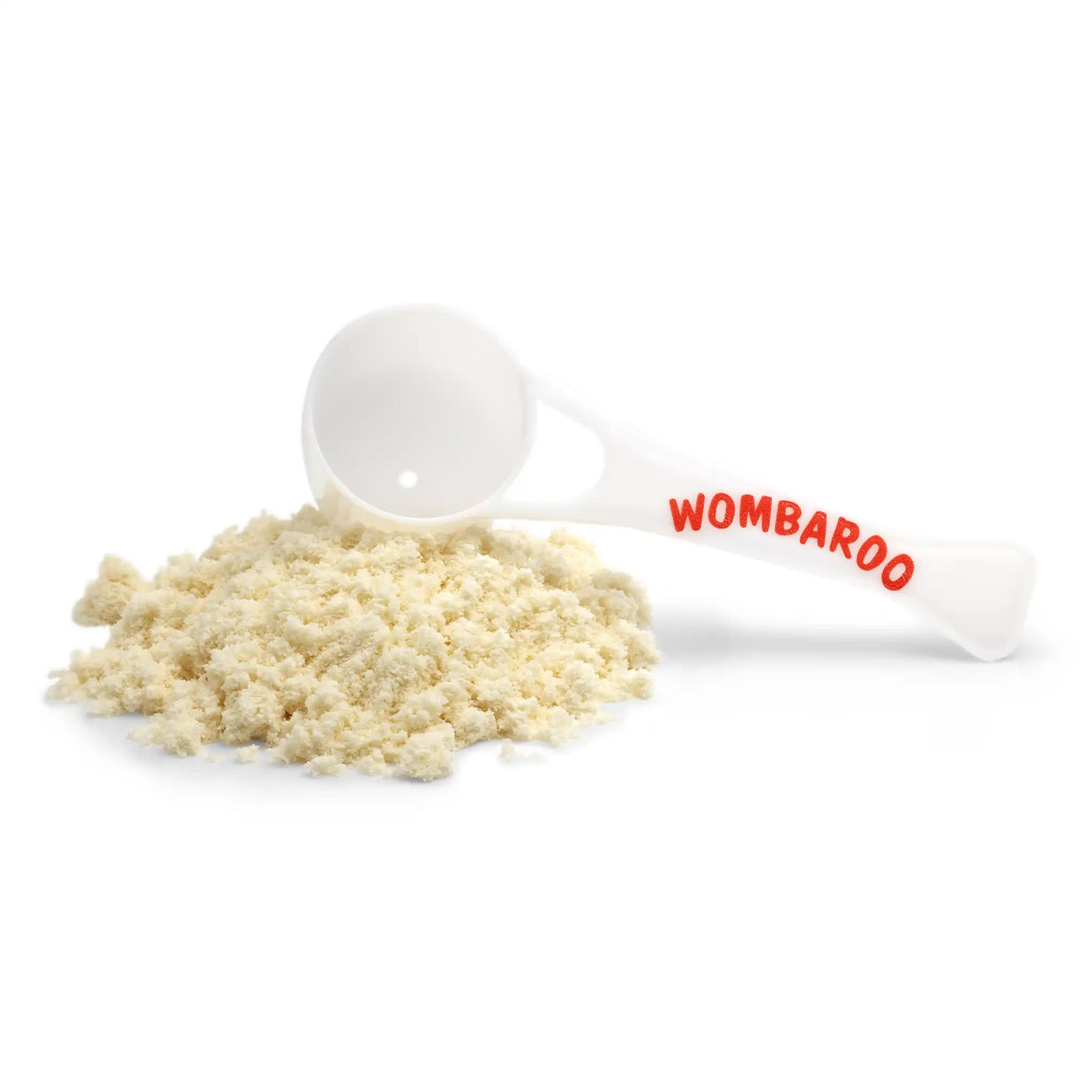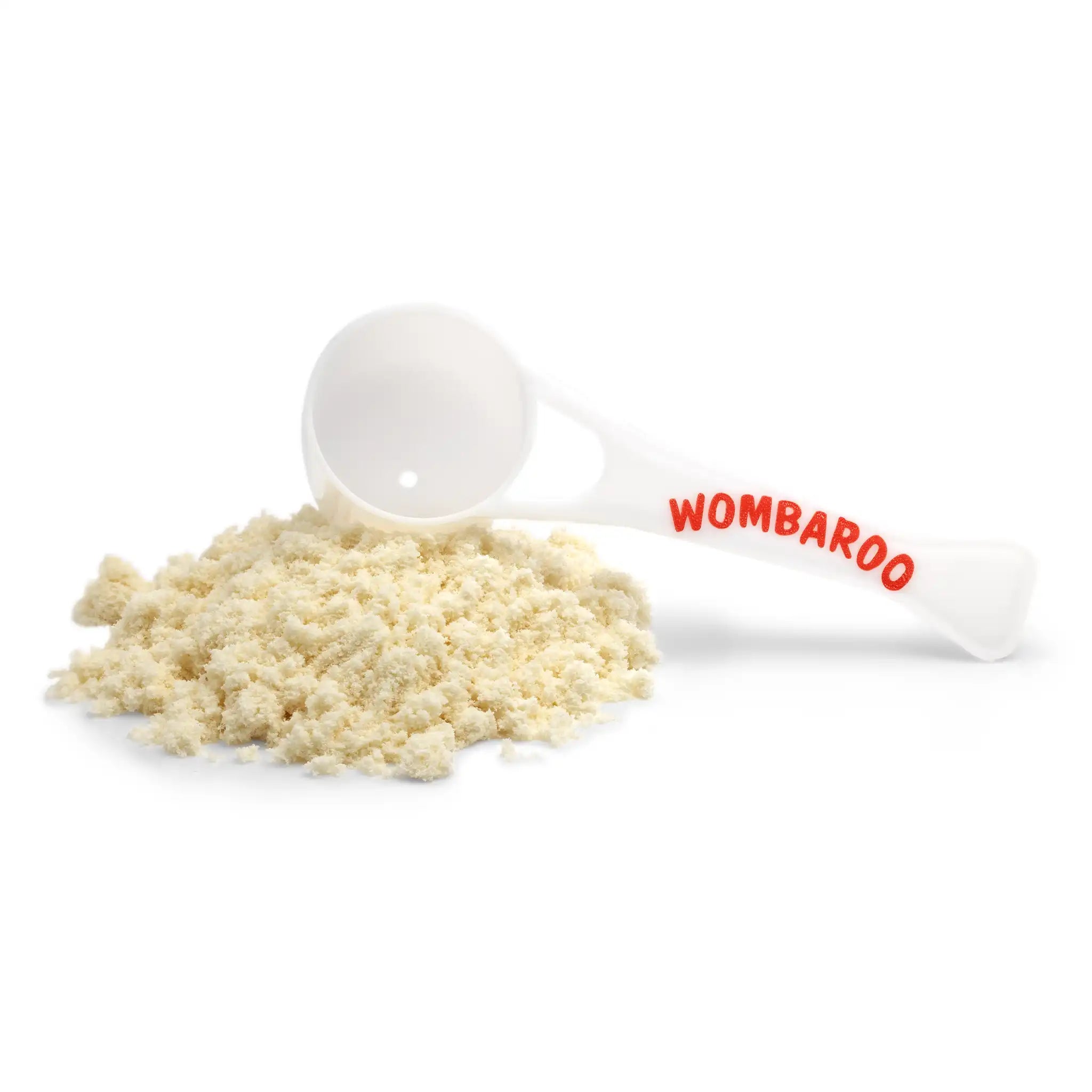









Have a question?
- Description
- About Wombaroo
- Mixing and Storage Guidelines
- Feeding Guidelines
- Growth and Weaning
- Ingredients
High-quality milk substitute for kittens of all breeds. The milk formula is perfect for feeding orphaned kittens or when the mother’s milk is limited. Specially formulated to match the composition of mother’s milk, Wombaroo formula is high in protein for improved growth rates and elevated taurine to support your kitten’s vision, heart, and brain development.
Newborn kittens that did not receive colostrum from their mother may benefit from Impact Colostrum Supplement.
Australian made high-quality milk replacers. Wombaroo’s team of experts has worked since 1984 to develop scientifically backed premium milk replacers and food for exotic animals. Wombaroo has developed products specifically for zoos and captive breeding programs to support wildlife conservation projects worldwide.
To make 30mL of milk: Mix 1 level scoop (6.5g) of powder with 25mL of warm water.
To make 1 liter of milk: Mix 215g of powder with 850mL of warm water.
Add about half the water to the powder first and mix into a paste. Then add the remaining water and mix thoroughly. Pre-boil the water to ensure it is sterilized. If the water is too hot, it can cause the milk to curdle; if it is too cold then it will be difficult to disperse the powder. An electric whisk can be used for mixing larger quantities.
Milk can be refrigerated for up to one day or frozen for up to 2 weeks. You can save time by making larger quantities and storing it frozen in small portions (e.g. ice cube trays), so that the required daily feed volumes can be easily thawed out. Once thawed, discard any unused milk, and wash feeding utensils thoroughly.
Warm milk to about 95°F (35°C). Feed from a bottle with a nipple. In emergency cases, tube feeding may be required. Feed every 2 hours for the first 3 days, reducing this to every 4 hours by week one and every 6 hours by week two. Stimulate kittens to defecate and urinate after each feed. Encourage kittens to lap milk once their eyes are open and voluntary bowel motions begin.
To avoid dehydration during periods of hot weather, give drinks of pre-boiled water between feeds. Always provide access to drinking water once the kitten’s eyes are open and they become active. Consult your veterinarian or breeder for particular advice about caring for your breed of kitten.
See back of the box for dosing instructions.
Kitten body weight should increase by about 10-15g per day. Consistent weight gain is an indication of good health. It is important to weigh kittens regularly to verify growth rate and to determine daily feed volumes. Overfeeding milk can cause diarrhea.
When kittens are about 4 weeks old, they should show interest in solid food. To entice them to eat solids, offer a small portion of specially formulated kitten dry food soaked in milk. Once they start to eat solid food continue to increase the solids and reduce the milk in their diet until they are fully weaned at about 8 weeks.
Whole milk solids, whey proteins, casein, taurine, vegetable oils, omega-3 and omega-6 fatty acids, vitamins A, B1, B2, B3, B5, B6, B9, B12, C, D3, E, K, biotin, choline, calcium, phosphorus, potassium, sodium, magnesium, zinc, iron, manganese, copper, iodine, selenium.
Analysis
- Protein 43%
- Fat 27%
- Ash 5%
- Moisture 4%
This formula was perfect. Dissolved beautifully and the babies absolutely adored it. The only downside was the size, it didn’t last a week. This formula will definitely be going on my wishlist for anyone who wants to make a donation when they drop off a baby from now on though!
